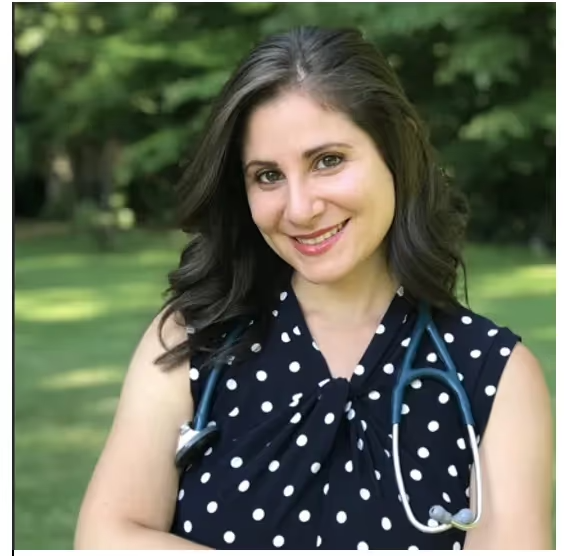What if your career could help others thrive physically, emotionally, and spiritually? Integrative medicine is transforming healthcare by blending conventional treatments with evidence-informed holistic approaches. More than a trend, it’s a response to increasing demand for whole-person wellness solutions.
This guide explores the top careers in integrative medicine, examining the roles, required education, salary expectations, and how each contributes to a more comprehensive approach to health and healing.
Understanding integrative medicine
Integrative medicine represents a significant shift in healthcare delivery, focused on treating the whole person rather than just managing symptoms. Let’s explore what makes this approach unique and why it’s growing in popularity.
Whole person care is the future.
Fullscript puts it within reach.
healthcare is delivered.
What’s integrative medicine?
Integrative medicine combines conventional medical practices with evidence-based complementary therapies. Unlike purely alternative medicine, integrative approaches don’t reject conventional treatments but rather incorporate additional modalities that may benefit patients.
The core principles include treating the whole person, emphasizing the therapeutic relationship, and using all appropriate interventions from conventional and complementary approaches.
While some studies have explored the potential of integrative health care to manage complex chronic conditions, the evidence remains limited and inconsistent, with further rigorous research needed to draw firm conclusions.
Growing demand for integrative health careers
The integrative health field has experienced substantial growth in recent years. According to the Academic Consortium for Integrative Medicine & Health, membership has grown from 8 academic health centers in 1999 to over 75 today, indicating increasing institutional acceptance.
Several factors drive this expansion, including rising chronic disease rates, growing patient preference for personalized care, and increased emphasis on preventive health strategies. A survey by the National Center for Complementary and Integrative Health found that approximately 30% of adults use approaches that fall outside conventional medicine.
Looking toward 2025 and beyond, employment opportunities in integrative health fields are projected to grow faster than average. This growth reflects both consumer demand and broader recognition of the value these approaches may offer healthcare systems.

Licensed medical careers in integrative medicine
For those with medical training or interested in pursuing it, several career paths combine conventional medical knowledge with integrative approaches.
Integrative medical doctor (MD or DO)
Integrative physicians complete conventional medical training plus additional education in complementary approaches. To become board-certified, doctors can pursue certification through the American Board of Integrative Medicine (ABOIM) after completing an integrative medicine fellowship.
These providers may work in dedicated integrative centers, hospitals with integrative programs, or private practice. Integrative physicians typically earn $200,000 or more annually, with higher salaries in certain geographic areas and specialties.
Naturopathic doctor (ND)
Naturopathic doctors focus on natural healing methods and preventive care. To practice as an ND, you must graduate from an accredited four-year naturopathic medical school and pass the Naturopathic Physicians Licensing Examination (NPLEX).
The Association of Accredited Naturopathic Medical Colleges (AANMC) oversees educational standards for naturopathic medicine. NDs typically earn between $79,503—110,000 annually, with variation based on location and practice setting.
Chiropractor
Chiropractors focus on the relationship between the body’s structure (primarily the spine) and function. They complete a Doctor of Chiropractic (DC) degree, which typically takes four years after undergraduate studies, and must pass the National Board of Chiropractic Examiners (NBCE) exam.
Chiropractic care may help manage conditions like back pain, headaches, and certain musculoskeletal issues. Most chiropractors work in private practice settings, earning between $73,000—81,000 annually.
Acupuncturist
Acupuncturists use thin needles inserted at specific points to promote health and alleviate various conditions. Becoming a licensed acupuncturist typically requires a master’s degree from a program accredited by the Accreditation Commission for Acupuncture and Oriental Medicine (ACAOM).
Many acupuncturists also use complementary techniques like cupping, moxibustion, and herbal medicine. The average salary range is $60,000—80,000 annually, with many providers working in private practice or integrative clinics.
Coaching, wellness, and nutrition careers
For those looking to enter integrative health without medical degrees, several impactful career paths focus on supporting lifestyle changes and wellness.
Health coach
Health coaches support clients in making sustainable lifestyle changes to improve overall health. The National Board for Health and Wellness Coaching (NBHWC) offers a recognized certification that many employers prefer, though requirements vary by state.
Health coaches typically use behavior change models to help clients set realistic goals and develop action plans. The average salary ranges from $40,000—60,000 annually, with opportunities in private practice, clinics, corporate wellness programs, and telehealth.
Nutritionist and functional nutritionist
Nutritionists with an integrative focus help clients develop personalized eating plans based on their health needs and goals. Unlike registered dietitians (RDs) who often work within conventional medical guidelines, functional nutritionists may take a broader approach that considers food quality, preparation methods, and individual biochemistry.
Functional nutritionists specifically focus on how nutrition affects body systems and biochemical processes. Salary ranges typically fall between $45,000—60,000 annually. When seeking nutrition advice, consult with your healthcare provider to find an approach that complements.
Wellness coordinator
Wellness coordinators develop and implement health programs in various settings, including workplaces, schools, and community centers. They typically assess needs, design appropriate initiatives, and evaluate program effectiveness.
These professionals often have backgrounds in health education, psychology, or exercise science. The average salary is approximately $50,000—60,000 annually, with higher compensation possible in corporate settings or with additional credentials.
Life coach
Life coaches focus on personal transformation and self-development, helping clients clarify goals and overcome obstacles to achievement. While health coaches primarily address physical well-being, life coaches often work on broader aspects of personal fulfillment.
Certification options include programs accredited by the International Coaching Federation (ICF). Life coaches earn between $30,000—70,000 annually, with experienced coaches in specialized niches often commanding higher rates.
Corporate wellness director
Corporate wellness directors oversee employee well-being initiatives within organizations. They develop strategies to improve health outcomes, reduce healthcare costs, and enhance productivity through wellness programming.
These professionals typically have backgrounds in health promotion, business, or human resources, often with additional certifications in wellness management. Salaries range from $70,000—100,000 annually, reflecting the significant responsibility and potential ROI of effective programs.
Traditional, energy-based, and movement healing professions
These modalities draw from traditional healing systems and movement practices that support well-being through various approaches.
Ayurvedic practitioner
Ayurvedic practitioners apply principles from this ancient Indian healing system, which categorizes individuals by constitutional types (doshas) and recommends personalized diet, lifestyle, and herbal protocols.
Education options include programs in both the US and India, with varying levels of certification. Ayurvedic practitioners earn an average of $40,000—60,000 annually, typically working in private practice or wellness centers.
Massage therapist
Massage therapists use manual techniques to manipulate soft tissues, helping to reduce pain, promote relaxation, and support recovery. In integrative settings, massage may be recommended as part of comprehensive treatment plans.
Licensing requirements include completing an accredited program and passing state-specific exams. The average annual salary is approximately $50,000—75,000, with opportunities in spas, clinics, hospitals, and private practice.
Reiki and energy healing practitioners
Energy healers work with what many traditions describe as the body’s energy field, aiming to balance energy flow and support natural healing processes. Reiki practitioners progress through certification levels from I—Master.
These modalities are increasingly used for stress management and as complementary approaches for pain. Income varies widely, typically ranging from $45,000—60,000+ annually depending on location and practice setting.
Yoga and meditation therapist
Yoga therapists apply yoga practices in therapeutic contexts to address specific health conditions. Certification through the International Association of Yoga Therapists (C-IAYT) or Yoga Alliance provides recognized credentials.
Research suggests these approaches may help with chronic pain, PTSD, anxiety, and other conditions. Yoga therapists earn an average of $50,000—60,000 annually, often working in wellness centers, healthcare facilities, or private practice.
Hypnotherapist
Hypnotherapists use guided relaxation and focused attention to help clients access a heightened state of awareness where they may be more responsive to suggestions. This approach may be helpful for smoking cessation, anxiety reduction, and pain management.
Certification through organizations like the National Board for Certified Clinical Hypnotherapists (NBCCH) provides professional credentials. Hypnotherapists typically earn between $45,000—75,000 annually.
EFT practitioner (Emotional freedom techniques)
EFT practitioners use “tapping” techniques combined with verbal focus on specific issues to address emotional and physical concerns. This energy psychology approach has gained popularity for work with trauma, anxiety, and addiction.
EFT practitioners typically earn between $40,000—65,000 annually. When considering EFT, consult with your healthcare provider about how this approach might complement conventional treatment strategies.
Reflexologist
Reflexologists apply pressure to specific points on the feet, hands, and ears that are believed to correspond to different body systems and organs. This practice aims to promote relaxation and support the body’s natural healing processes.
Certification programs, specifically in reflexology, provide specialized training. Reflexologists typically earn between $50,000—70,000 annually, often working in spas, wellness centers, or private practice.
Kinesiologist
Kinesiologists assess muscle response to evaluate energetic balance and functioning. Applied kinesiology techniques may be used to identify imbalances and guide treatment approaches.
Kinesiologists typically earn between $35,000—50,000 annually. While some find value in this approach, it’s important to discuss with your healthcare provider how kinesiology might fit within your overall health plan.
Educators, technicians, and specialized practitioners
These roles focus on specific therapeutic techniques or educational components within integrative medicine.
Biofeedback specialist
Biofeedback specialists use electronic monitoring devices to help clients develop awareness and control of physiological functions like heart rate, muscle tension, and brain activity. This approach may help manage conditions such as chronic pain, anxiety, and hypertension.
These specialists typically work in hospitals and private practices, earning between $60,000—75,000 annually. Biofeedback training may complement other treatment approaches for various conditions.
Holistic health educator
Holistic health educators develop and deliver educational programs about integrative health topics. They may work in community settings, schools, nonprofits, or public health agencies.
With salaries ranging from $68,100—87,600 annually, these professionals play an important role in expanding public understanding of comprehensive wellness approaches. Educational backgrounds typically include degrees in health education or related fields.
Integrative pain management specialist
These specialists, often medical doctors (MDs), osteopathic doctors (DOs), or nurse practitioners (NPs) with advanced training, combine various modalities to address pain comprehensively. Their approach may include physical therapies, mental health strategies, and dietary interventions.
Due to their advanced medical training, these specialists earn substantial salaries ranging from $343,142—544,732 annually. They typically work in specialized pain clinics or integrative medical centers.
Mindfulness instructor
Mindfulness instructors teach meditation, stress-reduction techniques, and awareness practices. They may work in diverse settings, including workplaces, schools, and healthcare facilities.
Training varies from weekend workshops to intensive multi-year programs. Instructors typically earn between $45,000—70,000 annually, with many working as independent contractors across multiple locations.
Retreat organizer/wellness travel facilitator
These professionals plan and implement wellness-focused retreats and travel experiences. They may organize yoga retreats, detox programs, or meditation experiences in destinations conducive to renewal.
Income is highly variable and often entrepreneurial, with earnings dependent on the scale and frequency of events organized. Success in this field typically requires strong logistical skills and established networks in wellness communities.
Spa therapist (integrative focus)
Spa therapists with integrative training offer holistic treatments that may include hydrotherapy, body wraps, and specialized massage techniques. They often work in resorts, destination spas, or private practice settings.
With annual salaries ranging from $40,000—55,000, these careers combine therapeutic skills with hospitality elements. Specialized training in specific modalities can increase earning potential and career opportunities.
Frequently asked questions (FAQs)
- Q1: What’s the difference between integrative and holistic medicine?
Integrative medicine blends conventional and alternative approaches based on evidence. Holistic medicine focuses on whole-person care but may not always include modern medical practices. - Q2: Do you need a medical degree to work in integrative medicine?
Not always. Many roles like health coach, massage therapist, or yoga instructor require certifications but not a medical degree. - Q3: What’s the job outlook for integrative medicine careers?
The demand is growing steadily, especially in wellness, chronic disease prevention, and lifestyle medicine. - Q4: Can integrative medicine be practiced in conventional healthcare settings?
Yes, hospitals, clinics, and medical centers increasingly employ integrative providers alongside MDs and RNs.
Key takeaways
Integrative medicine careers offer a diverse and growing array of options, from MDs to energy healers, all aimed at supporting whole-person wellness. These roles emphasize prevention, patient empowerment, and the blending of science with tradition.
Whether you’re just starting out or pivoting mid-career, the integrative medicine field offers deeply fulfilling paths that align with values of healing, compassion, and evidence-based care.
If you’re interested in pursuing a career in integrative medicine, explore accredited training programs in your area of interest and connect with providers already working in the field to gain insight into the daily realities of practice.
Whole person care is the future.
Fullscript puts it within reach.
healthcare is delivered.
References
- Aanmc. (2023, June 5). How to Become a Licensed Naturopathic Doctor. AANMC. https://aanmc.org/naturopathic-news/become-licensed-naturopathic-doctor/
- Academy of Nutrition and Dietetics: Scope of Practice for the Registered Dietitian. (2013). Journal of the Academy of Nutrition and Dietetics, 113(6), S17–S28. https://doi.org/10.1016/j.jand.2012.12.008
- American Board of Physician Specialties. (2025, February 7). Integrative Medicine Board Certification | ABPS. https://www.abpsus.org/specializations/integrative-medicine/#primary
- Anderson, E. Z., & Wolk-Weiss, C. (2008). Reiki. In Elsevier eBooks (pp. 239–248). https://doi.org/10.1016/b978-072160111-3.50023-3
- Author, A. (2024, January 3). Acupuncture Qualifications: Your Guide to a Rewarding Career. American Institute of Alternative Medicine. https://www.aiam.edu/acupuncture/acupuncture-qualifications/
- Ayurvedic practitioner. (2025). ZipRecruiter. https://www.ziprecruiter.com/Salaries/Ayurvedic-Practitioner-Salary#Yearly
- Barnes, J., McRobbie, H., Dong, C. Y., Walker, N., & Hartmann-Boyce, J. (2019). Hypnotherapy for smoking cessation. Cochrane Library, 2019(6). https://doi.org/10.1002/14651858.cd001008.pub3
- Baskwill, A. (2018, August 5). Developing Capability: Transforming Massage Therapy Education through Inquiry-based Learning. https://pmc.ncbi.nlm.nih.gov/articles/PMC6087657/
- Biofeedback therapist. (2025). ZipRecruiter. https://www.ziprecruiter.com/Salaries/Biofeedback-Therapist-Salary
- Bishop, M. D., Torres-Cueco, R., Gay, C. W., Lluch-Girbés, E., Beneciuk, J. M., & Bialosky, J. E. (2015). What Effect can Manual Therapy have on a Patient’s Pain Experience? Pain Management, 5(6), 455–464. https://doi.org/10.2217/pmt.15.39
- Bonakdar, R. A. (2017). Integrative Pain Management. Medical Clinics of North America, 101(5), 987–1004. https://doi.org/10.1016/j.mcna.2017.04.012
- Bruening, R. A., Coronado, F., Auld, M. E., Benenson, G., & Simone, P. M. (2018). Health Education Workforce: Opportunities and Challenges. Preventing Chronic Disease, 15. https://doi.org/10.5888/pcd15.180045
- Certification – International Association of Yoga Therapists (IAYT). (n.d.). https://www.iayt.org/page/certification
- Certified clinical hypnotherapist. (2025). ZipRecruiter. https://www.ziprecruiter.com/Salaries/Certified-Clinical-Hypnotherapist-Salary#Yearly
- Chiropractors. (2024, September 30). Bureau of Labor Statistics. https://www.bls.gov/ooh/healthcare/chiropractors.htm
- Cohen, M. M., Elliott, F., Oates, L., Schembri, A., & Mantri, N. (2017). Do Wellness Tourists Get Well? An Observational Study of Multiple Dimensions of Health and Well-Being After a Week-Long Retreat. The Journal of Alternative and Complementary Medicine, 23(2), 140–148. https://doi.org/10.1089/acm.2016.0268
- Complementary, Alternative, or Integrative Health: What’s In a Name? (n.d.). NCCIH. https://www.nccih.nih.gov/health/complementary-alternative-or-integrative-health-whats-in-a-name
- Corporate wellness director. (2025). ZipRecruiter. https://www.ziprecruiter.com/Salaries/Corporate-Wellness-Director-Salary
- EFT practitioner. (2025). ZipRecruiter. https://www.ziprecruiter.com/Salaries/Eft-Practitioner-Salary#Yearly
- Feinstein, D. (2023a). Using energy psychology to remediate emotional wounds rooted in childhood trauma: preliminary clinical guidelines. Frontiers in Psychology, 14. https://doi.org/10.3389/fpsyg.2023.1277555
- Feinstein, D. (2023b). Using energy psychology to remediate emotional wounds rooted in childhood trauma: preliminary clinical guidelines. Frontiers in Psychology, 14. https://doi.org/10.3389/fpsyg.2023.1277555
- Functional nutritionist. (2025). ZipRecruiter. https://www.ziprecruiter.com/Salaries/Functional-Nutritionist-Salary
- Get Board Certified | NBHWC. (n.d.). https://nbhwc.org/get-board-certified/
- Goodman, E. M., Redmond, J., Elia, D., Harris, S. R., Augustine, M. B., & Hand, R. K. (2018). Practice Roles and Characteristics of Integrative and Functional Nutrition Registered Dietitian Nutritionists. Journal of the Academy of Nutrition and Dietetics, 118(12), 2356-2368.e1. https://doi.org/10.1016/j.jand.2018.03.027
- Health coach. (2025). ZipRecruiter. https://www.ziprecruiter.com/Salaries/Health-Coach-Salary#Yearly
- Health education specialists. (2023, April 25). Bureau of Labor Statistics. https://www.bls.gov/oes/2023/may/oes211091.htm
- Hoenders, R., Ghelman, R., Portella, C., Simmons, S., Locke, A., Cramer, H., Gallego-Perez, D., & Jong, M. (2024). A review of the WHO strategy on traditional, complementary, and integrative medicine from the perspective of academic consortia for integrative medicine and health. Frontiers in Medicine, 11. https://doi.org/10.3389/fmed.2024.1395698
- Income expectations for naturopathic physicians. (2020). AANMC. https://aanmc.org/income-expectations/
- Jaiswal, Y. S., & Williams, L. L. (2016). A glimpse of Ayurveda – The forgotten history and principles of Indian traditional medicine. Journal of Traditional and Complementary Medicine, 7(1), 50–53. https://doi.org/10.1016/j.jtcme.2016.02.002
- Kinesiologist. (2025). ZipRecruiter. https://www.ziprecruiter.com/Salaries/Kinesiologist-Salary#Yearly
- Leach, M. J., Eaton, H., Agnew, T., Thakkar, M., & Wiese, M. (2019). The effectiveness of integrative healthcare for chronic disease: A systematic review. International Journal of Clinical Practice, 73(4), e13321. https://doi.org/10.1111/ijcp.13321
- Massage therapist. (2025). ZipRecruiter. https://www.ziprecruiter.com/Salaries/Massage-Therapist-Salary#Yearly
- Matthews, J. A., Matthews, S., Faries, M. D., & Wolever, R. Q. (2024). Supporting Sustainable Health Behavior Change: The Whole is Greater Than the Sum of Its Parts. Mayo Clinic Proceedings Innovations Quality & Outcomes, 8(3), 263–275. https://doi.org/10.1016/j.mayocpiqo.2023.10.002
- Mindfulness instructor. (2025). ZipRecruiter. https://www.ziprecruiter.com/Salaries/Mindfulness-Instructor-Salary#Yearly
- Mujtaba, B. G., & Cavico, F. J. (2013). Corporate Wellness Programs: Implementation Challenges in the Modern American Workplace. International Journal of Health Policy and Management, 1(3), 193–199. https://doi.org/10.15171/ijhpm.2013.36
- Occupational Employment and Wage Statistics (OEWS) Tables. (2025, April 2). Bureau of Labor Statistics. https://www.bls.gov/oes/tables.htm
- Pain management specialist. (2025). Salary.com. https://www.salary.com/research/company/integrative-pain-spine/pain-management-specialist-salary?cjid=33783723
- Patwardhan, B. (2014). Bridging Ayurveda with evidence-based scientific approaches in medicine. The EPMA Journal, 5(1). https://doi.org/10.1186/1878-5085-5-19
- Reflexology. (2025). ZipRecruiter. https://www.ziprecruiter.com/Salaries/Reflexology-Salary#Yearly
- REQUIREMENTS | NBCCH.com. (n.d.). NBCCH.com. https://www.nbcch.com/requirements
- Reiki. (2025). ZipRecruiter. https://www.ziprecruiter.com/Salaries/What-Is-the-Average-Reiki-Salary-by-State
- Schwartz, S. A., Utts, J., Spottiswoode, S. J. P., Shade, C. W., Tully, L., Morris, W. F., & Nachman, G. (2013). A Double-Blind, Randomized Study to Assess the Validity of Applied Kinesiology (AK) as a Diagnostic Tool and as a Nonlocal Proximity Effect. EXPLORE, 10(2), 99–108. https://doi.org/10.1016/j.explore.2013.12.002
- Sibold, J., Whitman, S., & Westervelt, K. (2023). An Evidence Based Rationale for Health and Wellness Coaching as a Complementary Certification in Undergraduate Health Education. American Journal of Lifestyle Medicine, 18(2), 181–185. https://doi.org/10.1177/15598276231189206
- Spa therapist. (2025). ZipRecruiter. https://www.ziprecruiter.com/Salaries/Spa-Therapist-Salary#Yearly
- U.S. Bureau of Labor Statistics. (2018, April 13). Dietitians and nutritionists: Occupational Outlook Handbook: U.S. Bureau of Labor Statistics. Bls.gov. https://www.bls.gov/ooh/healthcare/dietitians-and-nutritionists.htm#tab-1
- Van Tubergen, A., & Van Der Linden, S. (2002). OCCASIONAL PIECE A brief history of spa therapy. In Ann Rheum Dis (Vol. 61, pp. 273–275). https://pmc.ncbi.nlm.nih.gov/articles/PMC1754027/pdf/v061p00273.pdf
- Vickers, A. (2001). Hypnosis and relaxation therapies. Western Journal of Medicine, 175(4), 269–272. https://doi.org/10.1136/ewjm.175.4.269
- Welcome to ICF | International Coaching Federation. (n.d.). ICF. https://coachingfederation.org/
- Wellness coordinator. (2025). ZipRecruiter. https://www.ziprecruiter.com/Salaries/Wellness-Coordinator-Salary
- West, J., Liang, B., & Spinazzola, J. (2016). Trauma sensitive yoga as a complementary treatment for posttraumatic stress disorder: A qualitative descriptive analysis. International Journal of Stress Management, 24(2), 173–195. https://doi.org/10.1037/str0000040
- What is the average life coach salary by state. (2025). ZipRecruiter. https://www.ziprecruiter.com/Salaries/What-Is-the-Average-LIFE-Coach-Salary-by-State
- Whatley, J., Perkins, J., & Samuel, C. (2022). ‘Reflexology: Exploring the mechanism of action.’ Complementary Therapies in Clinical Practice, 48, 101606. https://doi.org/10.1016/j.ctcp.2022.101606
- Zhang, D., Lee, E. K. P., Mak, E. C. W., Ho, C. Y., & Wong, S. Y. S. (2021). Mindfulness-based interventions: an overall review. British Medical Bulletin, 138(1), 41–57. https://doi.org/10.1093/bmb/ldab005



